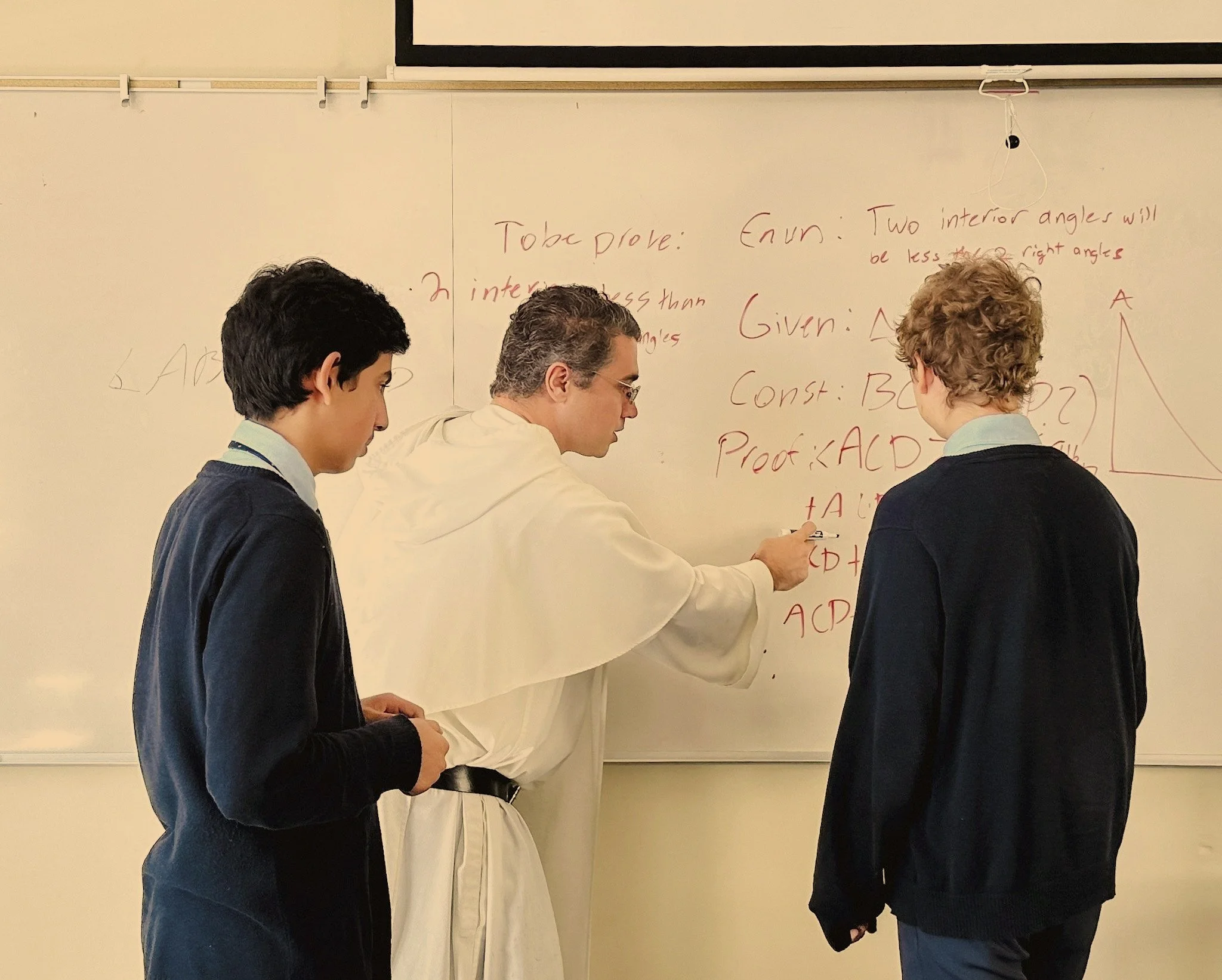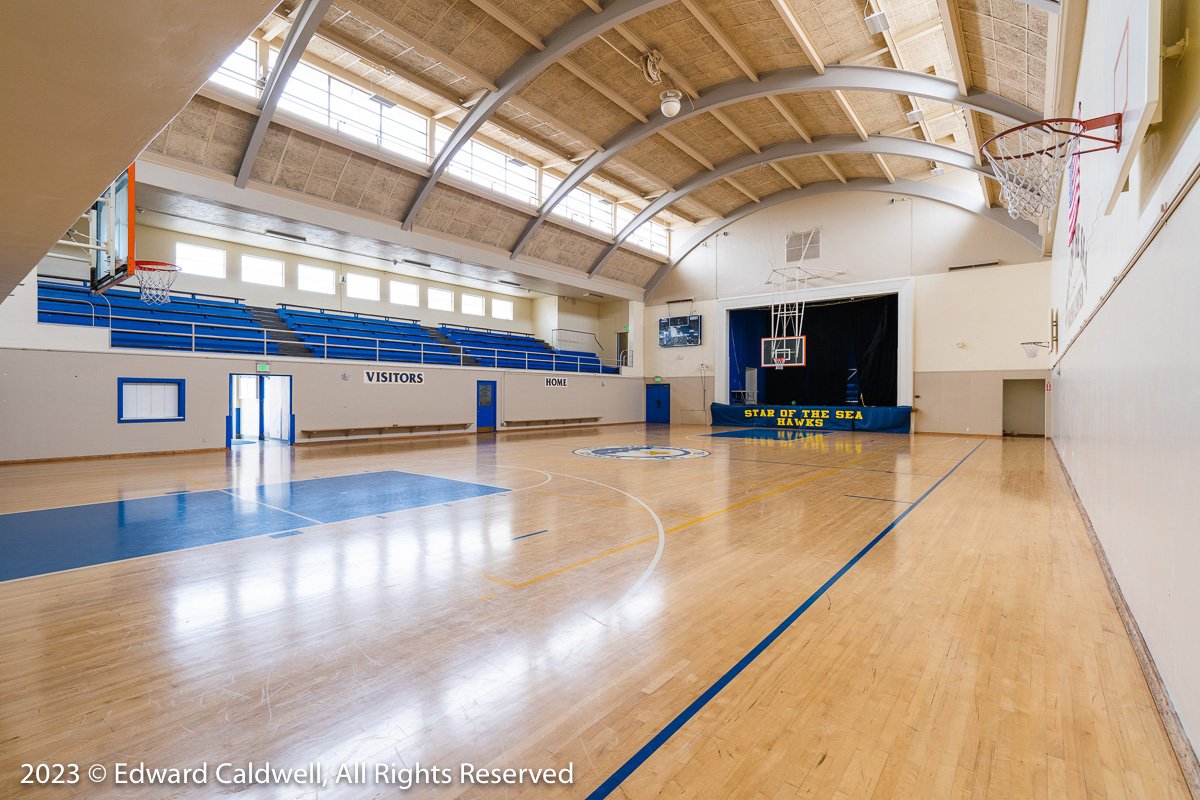
A Day at Nativity
Nativity offers a nurturing environment to do serious learning and begin to discover your gifts and understand your life’s calling. Small classes give you the opportunity to ask more questions. Your teachers will know you, your interests, your talents, your struggles, and your faith.
Below is a short overview of topics you might cover in a day at Nativity:
Convocation
We spend the first 15 minutes of each day gathering and mingling. A student, a visitor, or a teacher will offer a reflection or a story about their life. Any house points that were awarded the prior day are tallied. We conclude with a prayer or song and head to our first class.
Theology & Philosophy
In theology, we’re reading the ancient and current ‘proofs’ for the existence of God, relating them to what we learned in our science curriculum and debating their merits. Freshman year is devoted to the pre-Christian era - we study the Torah and the incredible history of Judaism and we read the Bhagavad Gita. These are two of the oldest and continuously practiced religious texts on earth. Sophomore year we study the historical record of the Gospels and read books like “The Case for Jesus” – a modern scholastic approach to ascertaining the true origins of the Gospels. By senior year we will read the Catechism of the Catholic church, a document that attempts to write down the radical standards of our faith and also explain the radical mercy we are offered when we inevitably fall short. We read the great Christian apologists - Augustine, Aquinas and Lewis, but we also read the best intellectual critics of the Christian faith – Marx, Nietzsche and others. Faith untested is not faith at all, we learn not to be fearful of questions nor of open dialogue about our beliefs.
History & Literature
In Literature we are reading the Epic of Gilgamesh, perhaps the world’s oldest written story - composed in modern day Iraq around 2,000 B.C., the original tablets were discovered just 150 years ago. Gilgamesh introduces us to the Epic Hero Poem style and prepares us to read the Greek Myths, the Odyssey and The Iliad later in the year.
In History we study ancient civilizations in Mesopotamia (Hammurabi and his Code), Egypt (King Tut and his pyramids), China (The Zhou Dynasty and Confucianism), and the Indus Valley Civilizations in India and Pakistan (known for their innovations in city-planning). We may read primary documents from these ancient periods and study maps and other visuals so we can truly understand the story of these first recorded human civilizations.
Math
We study everything from multiplying binomials to integrating functions. Our small classes allow for a short general instruction period followed by partner work with individual attention from your teacher in areas you find challenging. If you and a friend are ready to take on more advanced material – that’s facilitated as well.
Science
In Science we study the leading theories for the origins of the universe and human life, including the Big Bang Theory, first proposed by George Lemaitre, a physicist and Catholic priest. We dive deeply into Astronomy, often viewed as “The Oldest Science”. We study the Cambrian Explosion and understand what parts of human life on earth can be explained by the theory of evolution, and what questions about the Universe make sense through an understanding of a Creator. We study and marvel at creation as the most important fingerprint of the original first mover. These foundations prepare us for the rigorous mathematical sciences of Chemistry and Physics later in our development.
Prayer
After a morning packed with learning, we have time for prayer and reflection, perhaps offered for a relative of one of our students. Our whole community gathers in a beautiful space. This time reminds us what is truly important, refocuses our perspective on those in need. This mid-day routine helps calm our minds and refreshes our souls.
Lunch and Free Period
Each day we allot 30 minutes for lunch and an additional 30 minutes for open period. Lunch can be eaten in our cafeteria or in our outdoor green space. During the free period, we catch up on homework, chat with friends, play a game of basketball in our gym, or get involved with one of our club activities.
Fine Arts
After a morning of logic, reasoning, and left-brain activity, the afternoon feeds our right side of the brain. In our four-year music and art program we acquire skills that will bring us joy and equip us to make beautiful art and music for the rest of our lives. By senior year, each student will paint a replica of one of the great masterpieces from da Vinci, Cezanne, Gauguin, Van Gogh, or Monet. We paint original portraits of Saints or one of the many Christian and Catholic Nobel Prize winners. Student work adorns our walls. In music we sing four-part harmonies of ancient and modern sacred music. When every student learns the same repertoire, our assemblies and Masses are filled with the beautiful.
Service
“If a brother or sister is naked and lacks daily food, and one of you says to them, ‘Go in peace; keep warm and eat your fill’, and yet you do not supply their bodily needs, what is the good of that?”
- James 2:15.
Talking about our faith will prove pointless unless we live our faith. Our service block on Friday afternoons sends us out of our school to serve the poor, the poor in spirit, the weary, the sick, and the lonely. Whether we are stocking shelves at a food bank or soup kitchen, playing bridge with residents of a nursing home, or just offering free help to local small businesses, we have a chance to take our joyful, loving community outside our school walls. We learn that giving is better than receiving, and we all know the electric, joyful feeling one has after several hours spent helping someone who needed it.










